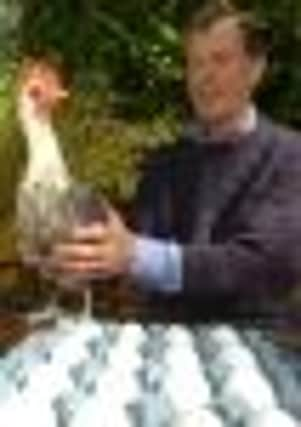Brierfield man exports eggs to Australia!


Andrew Hartley, of Kibble Grove, is a breeder of Campine and Vorwerk hens which he displays at shows across the country.
Mr Hartley says his interest in breeding is purely a hobby and an interest rather than a business as he grew up surrounded by agriculture in Skipton.
Advertisement
Hide AdAdvertisement
Hide AdThe retired businessman (76), who used to run Hardacre’s Bakery in Milton Street, Nelson, believes that different types of poultry need preserving for future generations to enjoy.
Now he has been approached to take part in the Australian Rare Poultry Importation Syndicate to introduce the hens Down Under.
In order to do this, the eggs need to have been cleared for salmonella and incubated before going into quarantine ahead of hatching in this country.
The hatched chicks will then go into quarantine again to become the providers for the eggs which will go on the long journey to Australia for introduction next year.
Advertisement
Hide AdAdvertisement
Hide AdThe programme is being run by the Australian government and monitored by DEFRA in the UK and it is two dozen of Mr Hartley’s large silver Campine eggs which are the type sought after for the programme.
Mr Hartley said: “The two types of hen I breed are Campine and Vorwerk. I’m one of only nine registered breeders of Vorwerks in the UK so there are not that many of us. I’ve been a member for a few years now.
“My interest is a long one as I was brought up in farming circles and I used to live in Skipton. There’s no shortage of people interested in rare breeds of poultry.
“There are two national shows every year, one in Staffordshire and one in Cheshire, and I show my hens at both.
Advertisement
Hide AdAdvertisement
Hide Ad“These are big events, a lot of people from foreign countries are there to show their poultry.
“This is how the poultry world is. Many will have never seen all these breeds and varieties, it really is quite a sight to see them all.
“I just think these breeds need preserving for the future, it would be a shame to see them die out.”
David Spackman, a specialist poultry vet who is the UK agent for the scheme, said: “This is a unique event, it has never been done before.
“There will be 71 different breeds and colours which will go in the form of 5,000 eggs. Andrew is one of two or three suppliers we are using to collect different genetic material.”